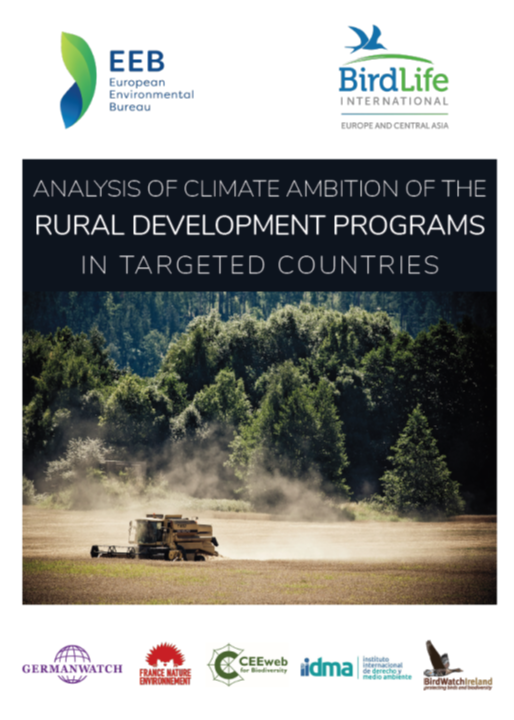An unavoidable step after Paris: cutting emissions from farming

The project "An Unavoidable Step After Paris: Cutting Emissions from Farming" aims for an increased public and political awareness around the need for an ambitious legislative framework on climate and agriculture.
In order to create a forward-looking agriculture sector that makes a significant contribution to the EU’s climate mitigation efforts, a solid knowledge base is needed, as well as knowledge sharing and inclusive stakeholders’ dialogue. This includes a national and EU-wide evidence-based dataset on farming potential towards climate mitigation, including socio-economic components, but also a policy analysis assessing to which extent this potential is currently achieved or underachieved and what role the current Common Agricultural Policy (CAP) plays in it and should play in the future.
This study and policy assessments will then feed into dialogues between key stakeholders (farmers, NGOs, scientists, industry, etc.) at national and pan-European levels on climate-friendly practices in order to facilitate the sharing of experiences. Through national and European workshops and subsequent communication work, increased public and political awareness around the need for an ambitious legislative framework on climate and agriculture (national plans, governance and CAP) is going to be created.
Background
While agriculture accounts for around 10% of the EU’s greenhouse gas emissions and is among the first sectors to bear the costs of disastrous climatic events, it is also perceived as a sector with limited mitigation potential in the current debate and very little has been asked of the farming sector regarding climate change mitigation. While the EU’s climate legislation is currently under co-decision, the debate about the reform of the CAP has only just begun, with communication by the European Commission on the CAP post-2020 having been published in November 2017.
Since the CAP uses a large part of the European budget and has shaped farming practices over Europe for the past decades, it can also play a crucial role in facilitating the transition towards a more sustainable and climate-friendly farming sector. However, this will only be possible if the next CAP is inclusively debated with the farming community; is mindful of the environment, consumers, health issues, etc. based on evidence; and is properly aligned with the European climate legislation and other policy objectives of common interest.
Goals & Objectives
The main objective of the project is to influence the CAP to properly address the main areas in agriculture with the greatest potential for climate mitigation:
- manure storage management;
- livestock management;
- soil carbon conservation and sequestration (e.g. reduced or no tillage, maintaining soil cover);
- synthetic and organic fertilizer management;
- switch in agricultural products (shift from intensive livestock farming to crop production);
- land-based livestock farming (shift from intensive livestock farming to extensive livestock farming); and
- agroforestry (shift from crop farming to agroforestry systems in which woody perennials are used on the same land as crops and/or animals).
Activities
- Scientific analysis of agriculture’s actual potential for reducing GHG emissions in five Member States.
- Participation in European Commission civil society dialogue groups on climate and agriculture.
- Analysis of the level of ambition of CAP Rural development programmes in the targeted countries running until 2020 in comparison with mitigation potential.
- Draft recommendations on the future CAP and climate policies.
- Organisation of multi-stakeholder workshops, with the participation of farmers, decision-makers, scientists, industry- and NGO representatives, with the objectives to build capacities, exchange views, and formulate recommendations.
- Creation of communication materials and online tools to share stories on climate and farming.
- Networking, knowledge sharing, and dialogue between key stakeholders, such as farmers, NGOs, scientists, industry, and decision-makers.
- Awareness-raising on the mitigation potential of the agricultural sector in targeted EU Member States.
- Dissemination of project results and outcomes, completed reports, analyses and recommendations.
Types of services
- Policy analysis and recommendations
- Advocacy
- Capacity-building
- Awareness-raising
- Stakeholder engagement
- Networking
- Lobbying
- Dissemination

